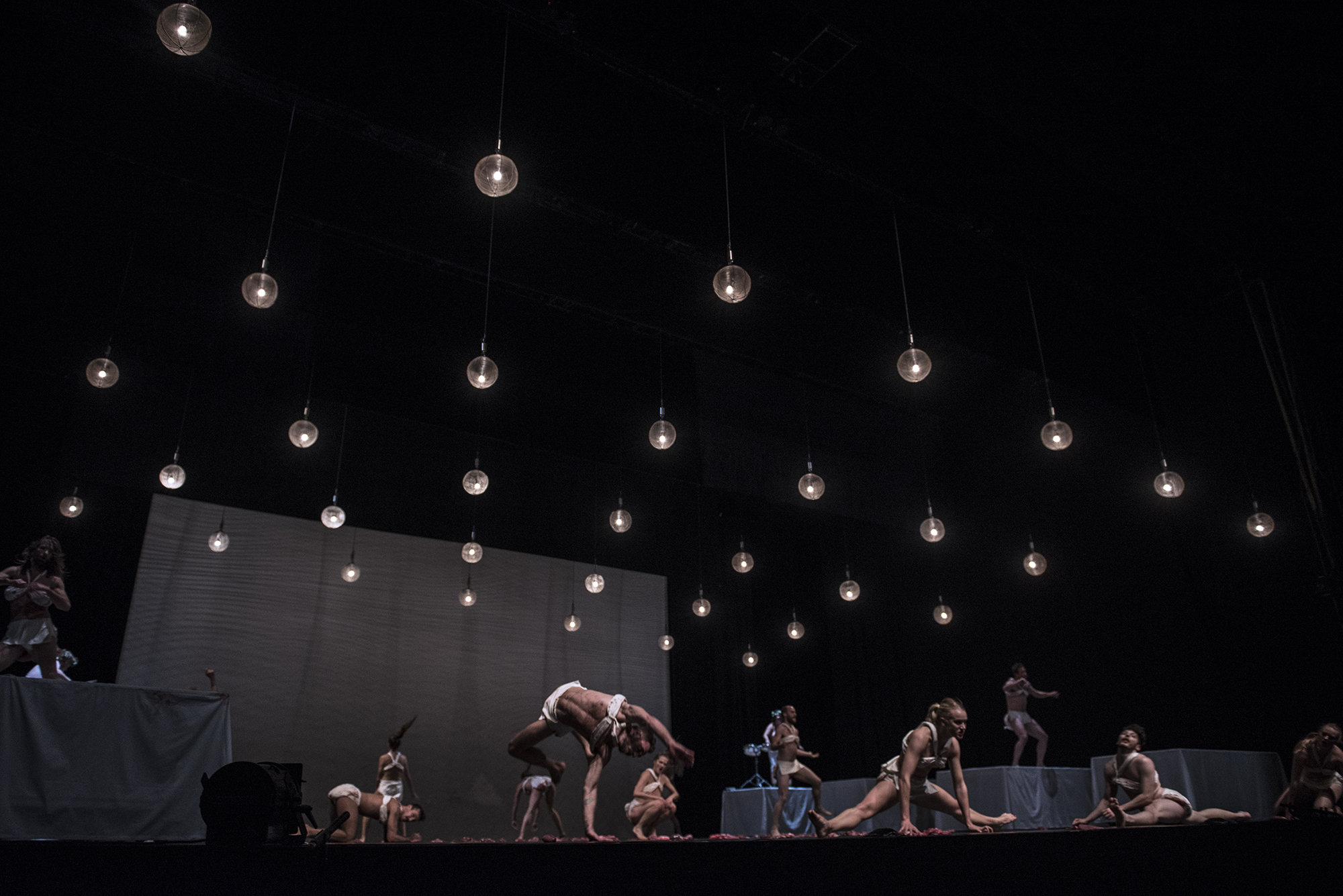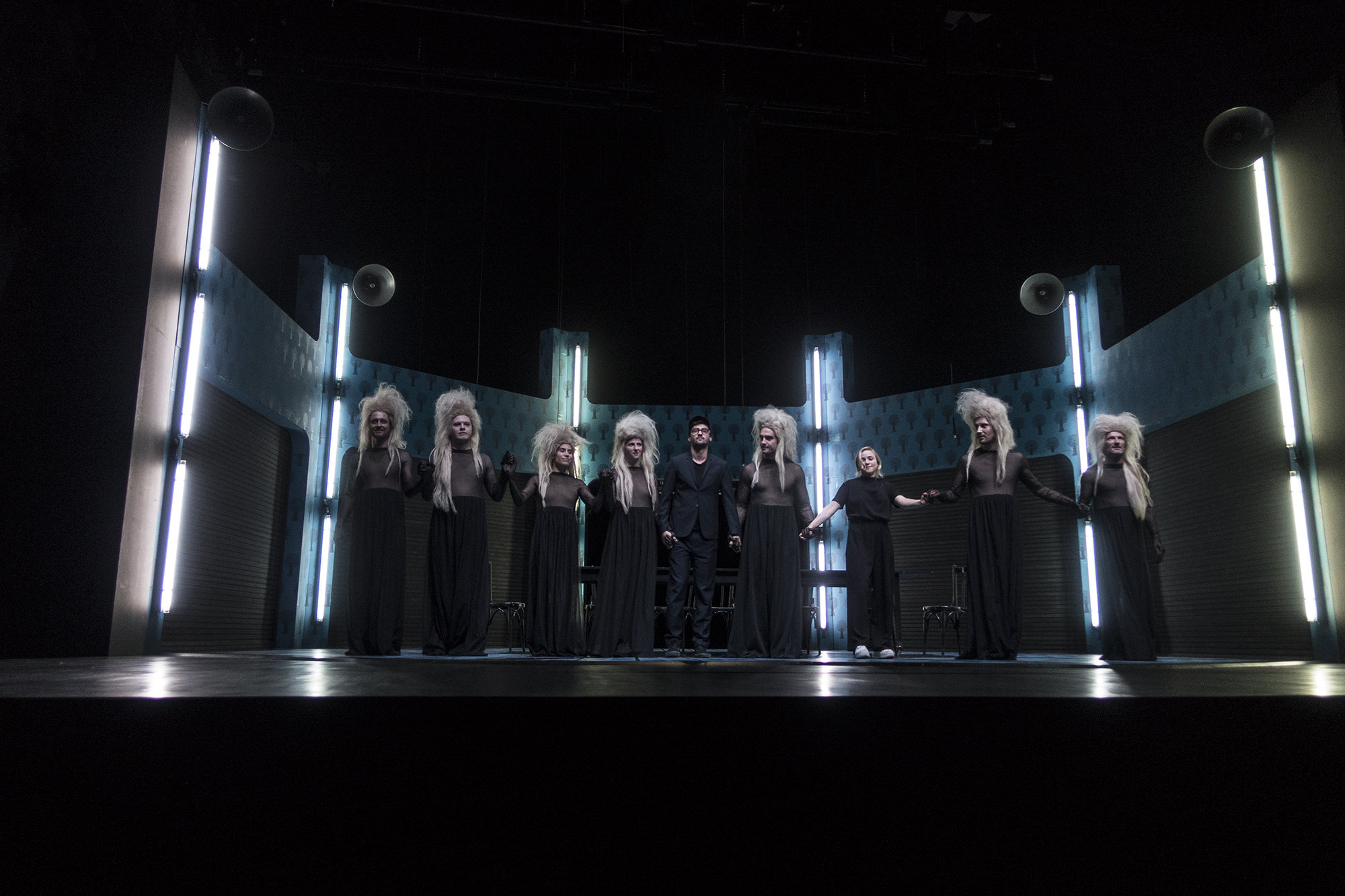In the 51st Bitef Main Programme, which was a kind of theatre marathon this year, there were seven performances, with a total duration of 40 hours. Within Prologue, the audience saw the legendary achievement of the British troops of the Forsd Entertainment Quizoola! which lasted for six hours, and it opened the main artistic theme of the 51th Bitef: a long duration of performance. Already in this performance, without any difficulties, the principle of these performances has been initiated: the exits and the entrance of spectators during the performance. Bearing in mind that Quizoola! Is a play for seventy people, it was seen by many more viewers in this way, which contributed to the “democratisation” of the festival.

The greatest attention was caused by the performance of the work Jan Fabra, Olympus: to the glory of the cult of tragedy – a 24-hours’ show, for which some of the world’s critics have previously stated that it is a forerunner, a stone interposed in the history of contemporary theatre. The viewers of the Third Programme of Radio Television Serbia had the opportunity to, without interruption, monitor the performance of their roles in a direct broadcast, which caused controversy in the cultural and general public, but also abroad. In the Sava Centre hall, despite the fact that it was planned for 1300 spectators, according to some estimates, there were more than 2000 people in the end. Television broadcasts were watched by 220,000 viewers, making a real breakthrough for the RTS3, knocking off all previous records and multiplying their ratings. Many critics spoke about the play, and the most outspoken were “criticisms” on social networks that were primarily related to the images of naked bodies, and it is especially interesting that the reaction of the Serbian Orthodox Church also opposed these reactions. Deacon Nenad Ilić, among other things, wrote: “The recording of this extraordinary performance should be shown, if not in Seminaries, then certainly at the Faculties of Theology”. The artistic and social significance of this performance, as well as its television transmission, has been recognised by domestic professional criticism, and so, under the title “Theatre is again very important”, weekly Vreme writes: “If we judge the first half of the festival, it seems that in Belgrade there is a great and uncompromising influence of a culture that changes everyday life.”
